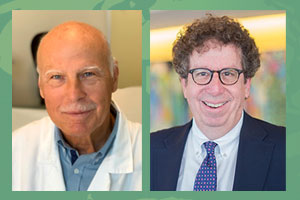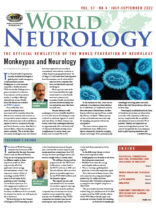By Wolfgang Grisold and Steven L. Lewis
 The WFN’s policies regarding industry sponsorship, continuing medical education (CME), and conflicts of interest (COI) are provided here.
The WFN’s policies regarding industry sponsorship, continuing medical education (CME), and conflicts of interest (COI) are provided here.
In many countries and regions, the separation of scientific content and industry events is strictly carried out. Examples include the United States via the Accreditation Council for Continuing Medical Education (ACCME), and in Europe via the European Union of Medical Specialists (UEMS) and its European Accreditation Council for Continuing Medical Education (EACCME), and these policies of separation of CME and Continuing Professional Development accreditation of Congresses and Meetings from industry events is strictly defined and monitored.
Educational programs point out this separation and strive to avoid influence of industry on education. CME rules need to be strictly adhered to, and only unrestricted sponsoring of industry can be accepted.
The pharmaceutical and device manufacturers have great merits in research and in producing products that are prescribed and used, and we have observed incredible developments in vaccines and genetic and other therapies in the past years.
Industry is often a main sponsor of scientific events and congresses, as well as online events, yet these sponsorships must be strictly separated from industry sales and advertisement, either overt or hidden.
For neurologists worldwide, all proceedings with industry, and possibly other stakeholders with specific competing interests, need to be transparent, and need to be declared.
The WFN
The policy of the WFN is to abstain from direct pharma sponsoring and remain as autonomous as possible to perform its duties and obligations in an equitable and unbiased role worldwide.
Congresses, including the WFN’s World Congress of Neurology (WCN), are usually organized by professional conference organizers (PCOs) who have a clear mission to accept industry support for exhibition halls as well as industrially sponsored symposia, which need to be clearly indicated and separated from the scientific program. In the UEMS regulations, these industry symposia may only appear in a separate program, or at the end of the program.
For most CME accreditors, there is a clear distinction between a scientific program and industry sponsored symposium. This distinction needs always to be adhered to.
Grants and supports of industry should be unrestricted, or in case of a project or research, must be defined to what extent the support is made, and what is expected from the recipient. Research internationally is often supported by industry or other sources, which need to be defined, and also mentioned in disclosures, such as in the disclosures of WCN speakers.
The WFN is aware that regulations and industry relations with scientific and professional societies vary worldwide, but it is important to openly declare any COI that comes from relations with industry or other organizations and institutions.
Lectures and Publications
Currently, one or more declared COIs are often found in the announcement of a lecture or a paper, and just define and explain that some relations could be seen as a COI and depending on the content of the COI this could be explored in more detail. It is often criticized that in lectures these slides appear only within a few seconds, and the audience would not be able to perceive the content. One possible solution would be to add the COI after the speaker’s name in the program.
We must also be aware that indirectly or directly, the main interests of industry and new products for specific diseases may influence the programs of industry. Studies show that popular congress themes are often driven by recent topics related to new products related to disorders such as headache and MS, and other topics may be neglected.
Equity and Access
There is also another important point to be made in regard to mainly lower-middle income and low-income countries, where activities either depend on industry money, or are restricted because of the lack thereof. We are painfully aware that even those drugs on the WHO list of essential medications are often not available, with issues related to access and equity.
Conclusion
For the moment, our homework will be to keep education, congresses, and CME free from direct influence of industry and other stakeholders. Disclosures at meetings, congresses, and papers need to be clear and tangible. In addition to individual responsibility, international neurological societies including the WFN need to have their own locally adapted policy regarding sponsoring and industry.
The WFN seizes on this opportunity to make the neurological community introspective and aware of its relations with industry which are often fruitful and necessary but need to be strictly regulated and adhered to.
The WFN is committed to full disclosure and adherence to independence from industrial and pharma influence. •
Wolfgang Grisold is president of the WFN. Steven Lewis is acting secretary general of the WFN.
